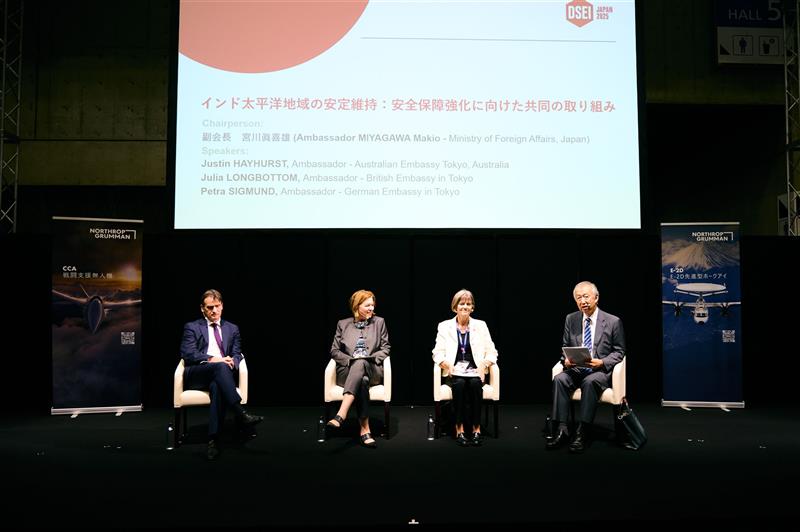DSEI Japan 2025: Germany calls for closer relationship with Japan

Germany’s comments underscore the country's desire to pivot towards the Indo-Pacific.
Germany is ending an era of hesitancy with its security policy in the Indo-Pacific, with Germany’s Ambassador to Tokyo, Petra Sigmund, saying that “times are changing”.
Speaking at DSEI Japan 2025, Sigmund highlighted that Germany is looking to deepen its partnership with Japan and the wider Indo-Pacific.
“Germany is increasingly looking to Japan as an arms provider, whom we can trust as a co-developer with similar strengths and similar needs. Also, as a potential procurement partner, in order to be able to scale up production to cut time and to reduce cost”.
In particular, Germany is seeking to collaborate with Japan on the development of “unmanned systems, drones, standoff weapons, missiles, air defense, cyber space, as well as maritime intelligence, surveillance and reconnaissance”, she said.
Although Germany has been previously hesitant to pivot towards the Indo-Pacific, it has begun to establish closer partnerships and expand its regional presence.
“Since 2021, Germany has gradually increased its security engagement here in the [Indo-Pacific] region. We have sent naval vessels, participated in multinational naval and air force exercises both in Japan, Australia and in India”, she said.
The ambassador was keen to point out that Germany has no territory in the Indo-Pacific, unlike the UK and Australia, whose ambassadors to Tokyo were also speaking on the panel.
“What might look like a small step to some of you, are actually big steps for German security policy”, she continued.
Sigmund highlighted 2021 and 2024 Pacific frigate deployments, which Germany was involved in, which she said were “meant as a signal that we do have interests in the region, political as well as economic”.
She also mentioned efforts from Germany to scale production and boost industrial capacity in both the Euro-Atlantic and Indo-Pacific theatres.
The ambassador framed Germany’s interests in the region within the context of wider European engagement in the Indo-Pacific, noting that this is not “merely a gesture or symbol”, but a strategic component in upholding the rules-based international order world-wide.
Benjamin Howe, Journalist, Clarion Defence & Security
